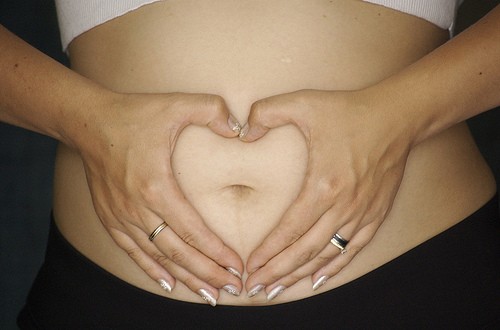
A new technique can help women experiencing early menopause to conceive successfully. The first baby conceived via this technique was delivered successfully and the second baby is on the way.
The groundbreaking invention, that involves a re-awakening of the ovaries, was developed by a team of doctors from the US and Japan, BBC reported.
Premature ovarian insufficiency or premature ovarian failure is a condition where women experience menopause early, around age 40. It is a condition caused by the scarcity of sufficient eggs and follicles in the ovary, and is different from premature menopause. Women with premature ovarian failure can become pregnant unlike those who had premature menopause. .
The trial involved 27 Japanese women, who were diagnosed with primary ovarian insufficiency and aged around 30. Thirteen of them had residual or leftover follicles in their ovaries.
During the procedure, known as in vitro activation (IVA), scientists from the St Marianna University medical school in Japan and Stanford University in the US removed a portion of the ovary from the participants.
The ovaries were subjected to treatment outside, including mechanical fragmentation and application of drugs, to block the activity of protein PTEN. The ovary pieces were then placed back into the fallopian tubes. Among them, eight women showed follicle growth. The participants later underwent hormone therapy and later in-vitro fertilisation (IVF) treatment.
"Although there are too little data available about this experimental treatment to guarantee any kind of success rate, the approach does look quite promising for women who have run out of eggs," said Valerie Baker, MD, associate professor of obstetrics and gynecology and chief of Stanford's division of reproductive endocrinology and infertility.
Scientists said the new technique can treat infertility in women caused by cancer chemotherapy or radiation. "We think it could help in two other forms of infertility. Cancer survivors after chemotherapy or radiotherapy; if there's any follicles left there's a chance this will help," senior author of the study, Dr. Aaron Hsueh, professor of obstetrics and gynecology at Stanford, told the BBC. "And also women aged 40 to 45 with an irregular menstrual cycle."
Findings of the study have been published in the online edition of the Proceedings of the National Academy of Sciences.





!['Kaise ho bhai..': PM Modi shook hands with Akshay Kumar at a media summit in Delhi [Watch]](https://data1.ibtimes.co.in/en/full/806317/kaise-ho-bhai-pm-modi-shook-hands-akshay-kumar-media-summit-delhi-watch.jpg?w=220&h=138)











